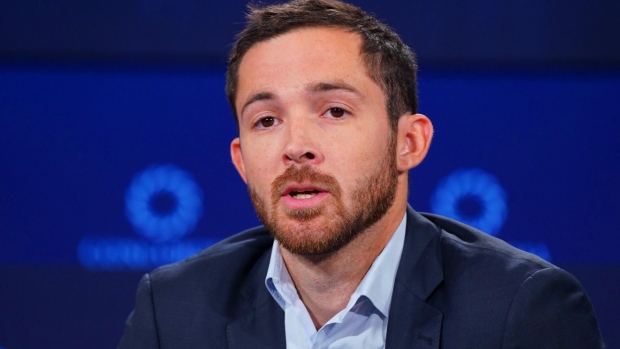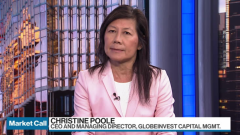Jun 14, 2024
Drunk Driving Arrest Threatens Tyson Heir’s Future at Meat-Packing Giant
, Bloomberg News

(Bloomberg) -- After John R. Tyson’s first arrest involving intoxication, he kept his job with the support of family and Tyson Foods Inc.’s board. Now a drunk-driving charge may jeopardize his path to the top of the largest US meat packer.
The great-grandson of Tyson’s founder was suspended from his role as chief financial officer after being arrested for a second time on Thursday in Fayetteville, Arkansas. He has been considered a potential successor to Chief Executive Officer Donnie King in a position that has historically been held by family members.
“There are now legitimate concerns about his ability to continue as an executive officer,” said Arun Sundaram, an equity analyst at CFRA Research. “It’s unlikely that any other high-ranking executive could retain their position after multiple legal issues.”
Tyson Foods didn’t respond to requests for comment.
John R. Tyson was pulled over after midnight Thursday when a police officer observed his silver sports utility vehicle speeding and striking a curb, according to a preliminary report from the University of Arkansas Police Department. An officer detected the smell of alcohol coming from Tyson’s vehicle, and Tyson eventually told the officer he had been drinking five to seven Miller Lite beers.
The incident comes less than two years after Tyson gained national attention when a woman found him asleep in her home in northwestern Arkansas, leading to charges of public intoxication and criminal trespass. The executive pleaded guilty and paid a fine, while receiving support from the board of directors, which said it had “continued confidence in his ability to lead Tyson Foods.”
Investor Confidence
But how the company treats the executive this time around is being closely watched by corporate governance experts. The company’s actions will be a key to investor confidence, already shaken by poor returns and scandals involving the treatment of workers during the pandemic.
“I don’t think it sends a very constructive or helpful message to the rest of the employees that a family member who’s also the CFO has two of these arrests and still has his job,” said Kabrina Chang, associate dean for diversity, equity, and inclusion at Boston University’s Questrom School of Business. “It could really hurt productivity and for sure negatively impact the culture of the company.”
The 34-year-old executive, a fourth-generation Tyson family member who attended Harvard and received an MBA from Stanford, has climbed the company’s ranks quickly. In 2019, he was appointed chief sustainability officer after being an observer at board meetings for five years. He was promoted to the CFO post just a few years later, in October 2022 — just a month before his first arrest.
Although the Tyson family doesn’t have an overall majority stake in the company, it still controls the board via ownership of most of the Class B super-voting shares. The suspended executive’s father, John H. Tyson, is chairman.
The younger Tyson “started out as chief sustainability officer and then was promoted to CFO, and with any company that’s usually not the track,” said Courtney Wicks, executive director of Investor Advocates for Social Justice, which represents a group of faith-based investors that are long-term owners of Tyson stock.
“This is a company that continues to have a considerable amount of scandal,” she added.
Covid Cases
A number of investors pressed Tyson and other meat packers after thousands of workers caught Covid-19 at processing plants during the pandemic. In 2021, the New York State Common Retirement Fund filed a shareholder proposal asking Tyson to end a dual-class share structure that it said has effectively insulated the company from having to answer its shareholders over the coronavirus crisis.
The office of New York State Comptroller Thomas P. DiNapoli declined to comment on the CFO arrest but said it continues to vote against directors because the share structure creates unequal voting rights.
Tyson Foods also gained negative publicity during the pandemic when it fired seven managers at an Iowa meatpacking plant after an investigation into accusations that they had bet on how many workers would be infected with Covid. Just this year, the company was targeted by a lawsuit seeking internal documents to investigate concerns that its corporate leaders turned a blind eye to the alleged use of illegal child labor.
It’s unclear what the next steps are for John R. Tyson, whose blood-alcohol content sample showed a reading of 0.191 — more than double the state’s legal limit of 0.08 — according to the preliminary police report.
“I wouldn’t be surprised if he still ends up being the CEO of the company even though I don’t think it would be in the best interest of the company,” said Wicks, whose investor group has been engaging with Tyson Foods on various environmental, social and governance matters for at least a decade. “One of the things that we’re starting to realize is without really strong corporate governance, you can’t effectively address the S or the E in ESG.”
©2024 Bloomberg L.P.





